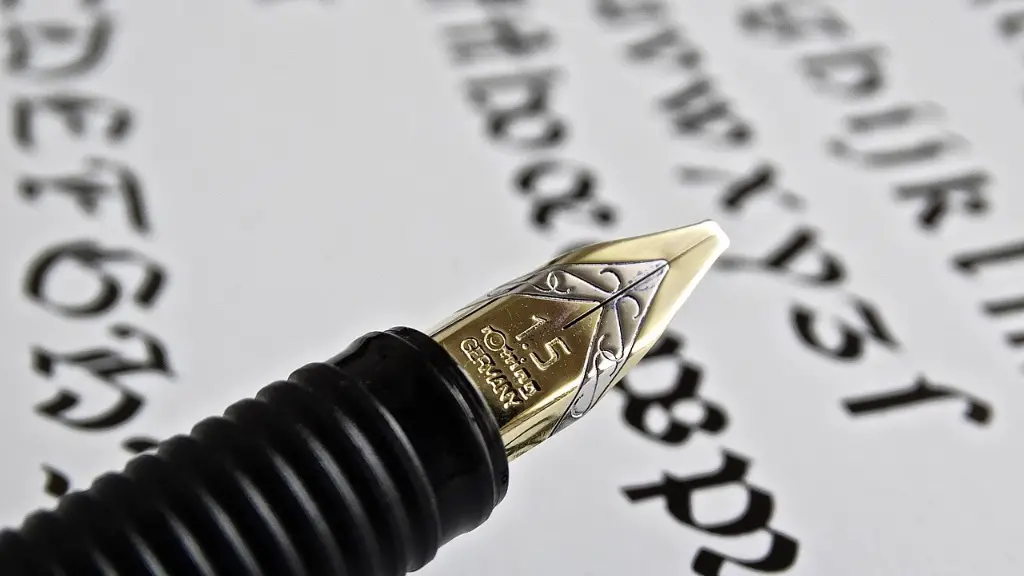Maya Angelou’s wisdom and writing mirrored the hardship oflife she faced. “When I Lay My Burden Down” is no exception. In this poem, Angelou masterfully conveys a woman’s tumultuous journey of pain and perseverance. As the title suggests, the poem explores a woman’s ability to shed her heavy burdens and live a life of liberation. Angelou writes that the speaker “put(s) down her bundle,” which reiterates the idea that the woman is unburdening her soul and her spirit.
Angelou reveals the capacity of the woman to acknowledge her suffering and strive for emotional independence. Her work displays a clear understanding of the intersectionality between gender, power and oppression. She depicts that the woman is able to use her faith and courage to regain her power and strength. This poem features many themes such as suffering and resilience which reveals Angelou’s understanding of the shared female experience of struggling through systems of oppression.
The poem has a narrative structure, which allows the reader to follow her journey. Her words describe the woman’s resilience, “And I get up again” is a testament to the fact that she will endure whatever obstacles present themselves to her. Furthermore, Angelou demonstrates the woman’s strength and courage “She don’t break too easy,” as well as her acceptance of faith “She sing a song of glory.”
The poem also contains a message of hope and perseverance. She implores her audience to form solidarity and remain determined. She writes “If she don’t cry no more cain can’t help her” which depicts that the only way she will find liberation is if she reclaims her own power.
In conclusion, “When I Lay My Burden Down” is an impactful poem about a woman’s capacity to confront and overcome systems of oppression. Angelou’s poem conveys a message of perseverance and resilience as the woman reclaims her power. Her poem so clearly displays that the way out of oppression is through faith and strength of character.
Education & Inspiration
A major theme of Angelou’s poem, “When I Lay My Burden Down,” is the power of gaining knowledge. This can be seen through her use of the words, “let her learn a lesson,” which implies that the woman needs to educate herself in order to gain the strength to stand up for what she believes. Despite every obstacle, the speaker strives to remain motivated to learn and grow from her experiences. Therefore, Angelou demonstrates that a woman’s capacity to “put down her bundle” requires her to continue learning so that she can challenge oppressive systems.
Moreover, Angelou uses an inspirational tone throughout the poem in order to encourage readers. The poem emphasizes that a woman can gain power through her courage and perseverance when faced with a difficult life. It is through Angelou’s use of inspiring words that she encourages readers to stay strong despite their hardships. She writes, “She don’t come back begging, but she come back singing,” which implies that a woman can create her own liberation by being persistent and never giving up.
In addition, the poem also serves as a reminder to rely on spiritual guidance in times of hardship. It is through the grace of God that she finds her salvation. Angelou courageously speaks about her faith, “She lift her soul for motivation,” which reveals that a woman’s courage and faith can be her greatest strengths.
Overall, “When I Lay My Burden Down” offers an important lesson and an inspiring message. Our world will continue to face oppression and discrimination, but Angelou’s words remind us that a woman’s faith and courage can be powerful tools when fighting for liberation.
Resilience & Strength
Maya Angelou’s poem, “When I Lay My Burden Down,” is a tribute to the power of resilience and strength. The speaker in the poem conveys the idea that no matter how many times she has been put down, her spirit will never break. Angelou writes, “If she don’t cry no more cain can’t help her” as a reminder of the speaker’s unwavering resilience.
Moreover, Angelou conveys a powerful message about gaining strength in moments of hardship. Through the speaker’s faith and courage, she shows the world that she can become an example of strength and perseverance. This is most evident when she says, “She don’t break too easy, but she don’t break at all.” Angelou reminds her readers that a woman’s faith and courage will be her greatest strength when striving towards liberation.
The poem is written in the call and response pattern of speech. The call is represented through her pain and suffering, while the response is her spiritual strength, courage and perseverance. This can be seen in the lines, “Sorrow don’t last too long and misery can’t stay/She got a little strength and rise up with the day.” These lines demonstrate that although the woman has experienced immense pain and suffering, she still has the capacity to rise and reclaim her power.
The poem serves as a reminder that we can find liberation when we choose to embrace our power and not be held down by the forces of injustice. Angelou is a brilliant example of strength, resilience, and courage in the face of adversity. Her powerful poem “When I Lay My Burden Down” is a testament to this.
Feminist Writing
One of the major themes of Maya Angelou’s “When I Lay My Burden Down” is a woman’s struggle against the oppressive forces of patriarchy. Angelou’s feminist writing was a revolutionary addition to literature, as she was the first African-American woman to ever write such empowering words. She used her words to deliver an inspiring message of liberation and strength.
For example, Angelou believes that a woman must recognize the power that she has deep inside of her. She writes, “She don’t come back begging, but she come back singing” which implies that a woman must take back her power and express her own agency. Furthermore, Angelou is clear about the oppressive effects of unjust power structures. She writes, “Keep the hound of hope set at full bay,” which serves as a reminder of the constant struggle against oppressive forces.
Moreover, Angelou wrote this poem through the voice of a Black woman. This allows her to add her own experiences of suffering as a result of racism and sexism to her poem. The character also speaks of her faith as a source of strength. The poem is also layered with symbols that point to a kind of everyday resistance, such as when the woman “put her bundle down” and uses her faith to reclaim her power.
Overall, Angelou was a revolutionary writer and her poem “When I Lay My Burden Down” conveys a powerful message of liberation. Her feminist writing provides a voice for Black women and their struggles against systematic oppression. By encouraging women to reclaim their power and strength, Angelou reminds us that a person can find liberation through their faith and courage.
Anthem of Liberation
The poem “When I Lay My Burden Down” by Maya Angelou is a powerful anthem of liberation. Throughout the poem, Angelou encourages her female readers to never give up on their search for emancipation and economic freedom. She writes, “She lift her soul for motivation,” which serves as an empowering reminder that a woman has the capacity to liberate herself from oppressive systems.
Angelou’s poem is also an example of her own views on the importance of Black liberation. In her writing, she speaks of racism and sexism and encourages women to look to their faith and courage as tools to confront oppressive forces. In the poem, she writes that, “She don’t turn around and go back to her plow/ She come a long ways and she can’t turn back now,” which serves as a reminder that a woman mustn’t be held down by the forces of racism and sexism and must move forward despite the odds.
The poem also speaks of the need for solidarity and support, which is necessary for a woman to find her liberation. It is clear that no one will fight for her freedom except for herself, however, she still deserves the respect and empathy from others who seek the same thing. For example, Angelou writes, “Don’t be tardy if you get the call to stand/ She need reinforcements now, she can’t stand alone.” This conveys the importance of creating a support system in order to gain the strength and courage to fight for one’s liberation.
Overall, Angelou’s poem is an empowering anthem of freedom. She reminds us that despite the oppressive and unjust forces of our world, a woman must never give up on her search for liberation. Instead, she must build solidarity and look to her faith and courage as her greatest sources of strength.





